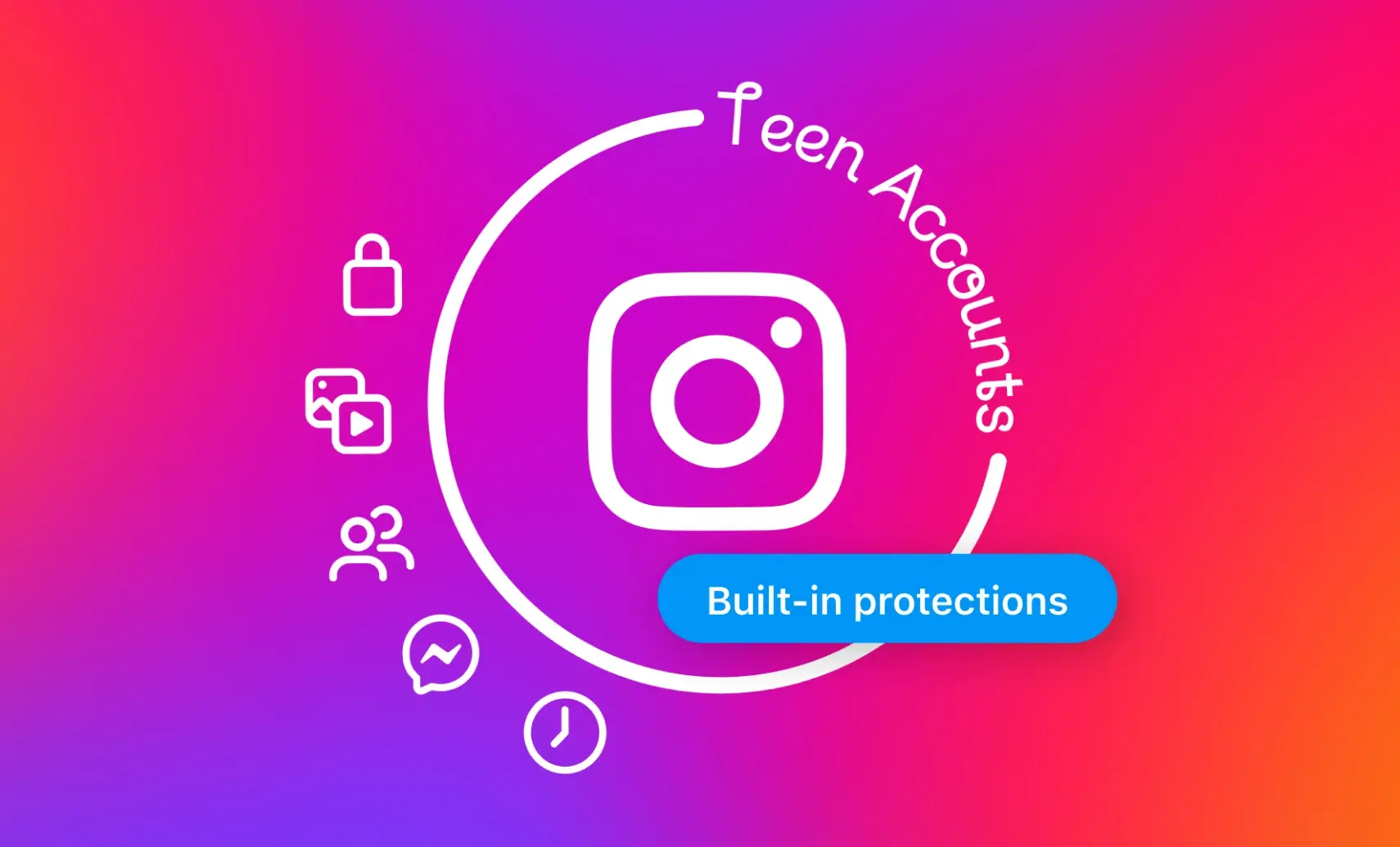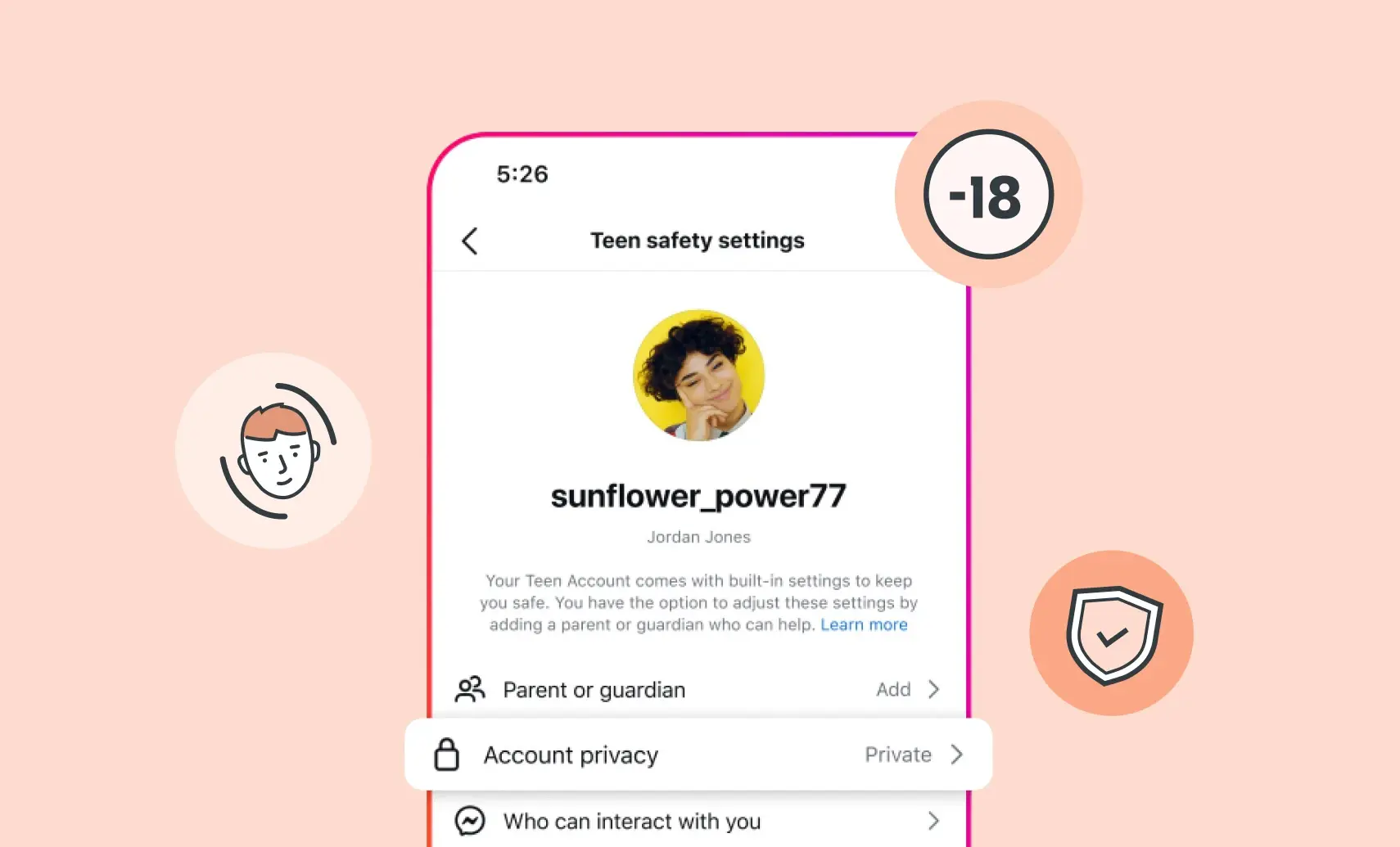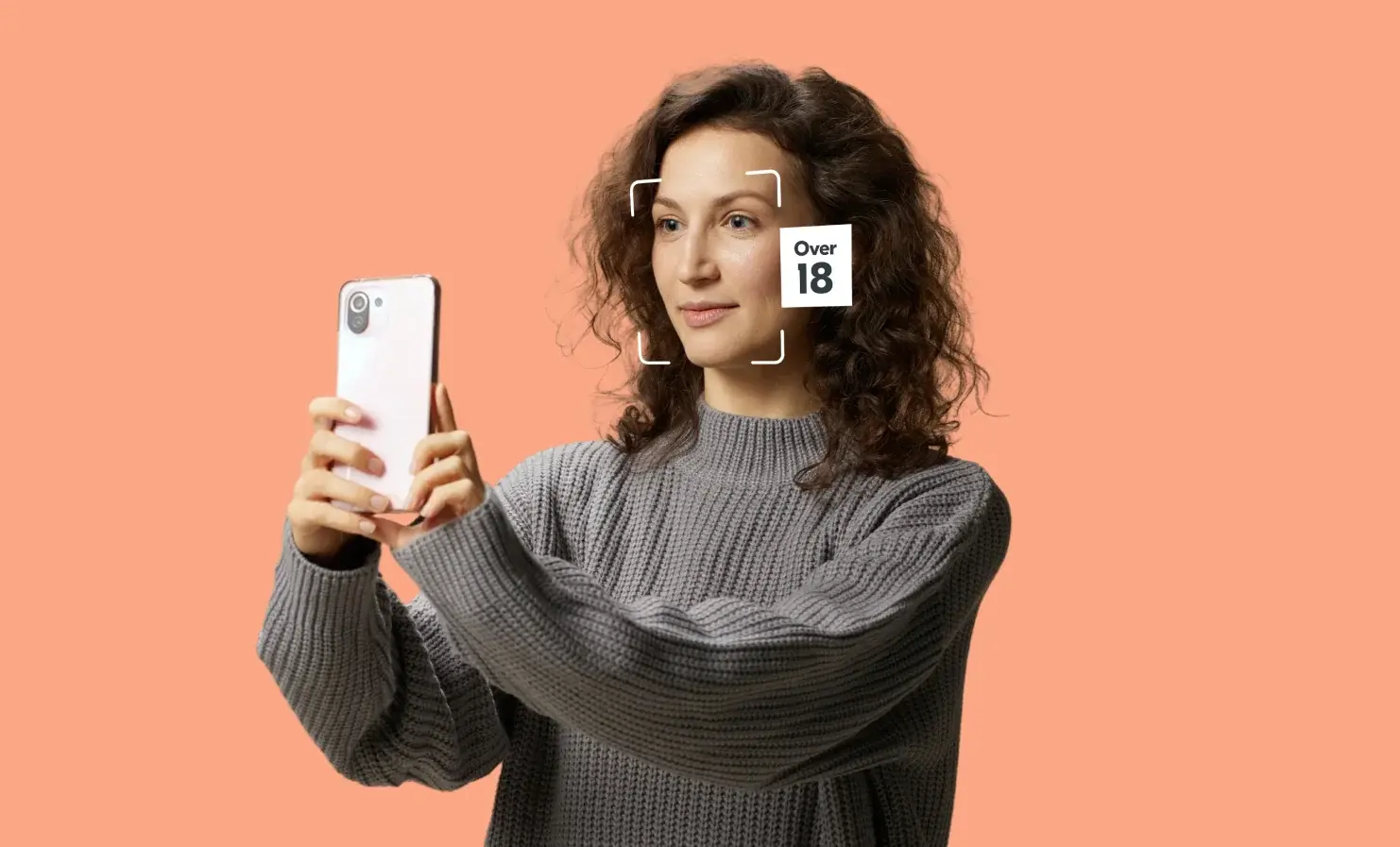
From today, Meta is introducing new ‘Teen Accounts’ on Instagram for users under the age of 18. This change aims to help parents keep their teens safe online, by including features that have built-in protections. These include the ability to set daily usage limits, restrict access during certain hours and monitor their child’s interactions, such as the accounts they are messaging and the types of content they’re engaging with on the platform.
New users under the age of 18 are, by default, given the strictest privacy settings. Under the new guidelines, teens aged between 16 and 18 will be able to change their settings independently. In contrast, if those aged under 16 attempt to adjust their settings, parental supervision features will come into play.

We’re helping Instagram to check their users’ ages through our age assurance solutions.
We’re doing this with:
- facial age estimation – this accurately estimates a person’s age from just a selfie. Images are deleted as soon as the age estimate is delivered and aren’t used for any other purposes.
- age verification using an ID document.
The new Teen Account settings will initially apply to new users, with plans to gradually implement them for existing teen accounts.
This initiative reflects Meta’s commitment to promoting safer social media engagement for younger users while giving parents tools to support their children’s online experiences and giving them peace of mind that their teens are navigating the digital world safely.
Robin Tombs, CEO of Yoti said, “Many people, especially parents, want reassurance from brands that children are getting age-appropriate experiences online. Yoti is delighted to be working with Instagram to help ensure teenagers throughout the world will be able to enjoy safer interactions with their peers via Teen Accounts.”




